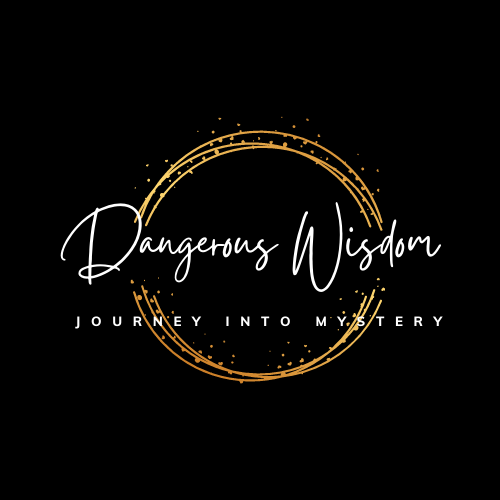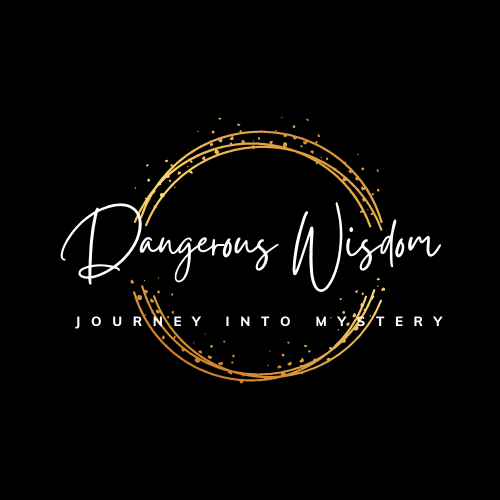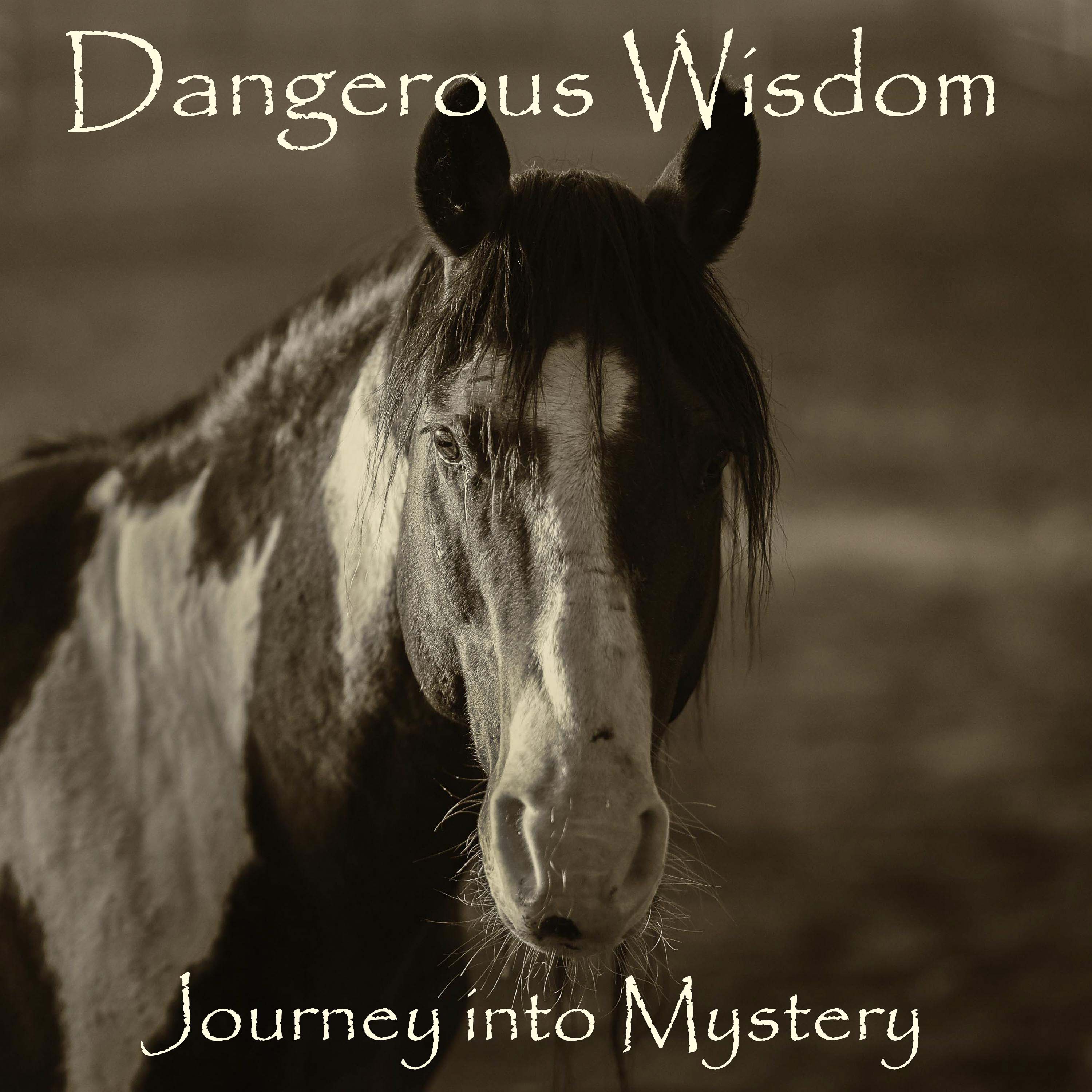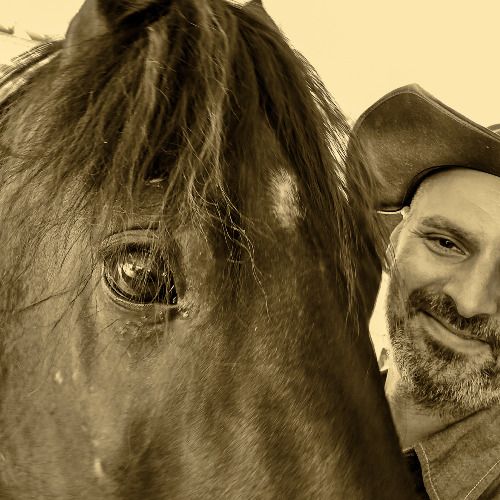The Great Field of New Discoveries and the Terrifying Dream of William James
What is the great field of new discoveries? Where will the truly paradigm-shifting breakthroughs come from?
The great psychologist and philosopher William James invites us to see how our next big breakthrough will come from what we now see as noise in the data, as impossible, as absurd.
In this suggestion, James joins a vast group of philosophers who understand the true spiritual meaning of the impossible. He also points us directly at a vast collection of data that right now doesn’t fit in the paradigms that rule the science of the dominant culture.
James himself became one such datum, one such gift to our possible transformation. But it terrified him. Together, we will try to understand why, and what it all means for our mutual insight, mutual liberation, and mutual health and healing.
Transcript
The Terrifying Dream of William James and the Great Field of New Discoveries
Note: This is a rough transcript. Since the Dangerous Wisdom podcast uses many names and terms that transcription software fails to recognize, a more accurate transcript is not possible at this time. But this version is as close as we can manage.
Listen here: https://dangerouswisdom.org/podcast
Or subscribe via your preferred podcast directory here: https://dangerous-wisdom.captivate.fm/listen
Welcome to Dangerous Wisdom, a journey into the mystery and a gateway to the mind of nature and the nature of mind. This is dr. nikos, your friendly neighborhood soul doctor, joining you in this moment so we can remember together that Real wisdom is dangerous, but it’s the direct, unconventional path to success and the good life for all. Dangerous wisdom can heal us and the world at the same time.
We’re picking up from our last contemplation, in which we considered Aldous Huxley’s description of the spirit of the mystical way of knowing. He pointed out that the wisdom traditions of the World agree that exceptional insight tends to demand exceptional dedication to a holistic philosophy of life, and in particular demands a kind of passionate intensity.
We related this to courage as well. We gain so very much as we learn to go to the places that scare us. We shouldn’t do that forcefully or aggressively. We need compassion for ourselves, and for the parts of us that fear the vastness and mystery of reality.
Huxley quoted William James as say, “Practice may change our theoretical horizon, and this in a twofold way: it may lead into new worlds and secure new powers. Knowledge we could never attain, remaining what we are, may be attainable in consequence of higher powers and a higher life, which we may morally achieve.”
I love that quote, even though I couldn’t find it in James’s work. If you happen to know where it’s from, please get in touch.
But we don’t need the quote to be from anyone special. It reflects a basic teaching of the wisdom traditions, and also a crucial discovery of the science of the dominant culture.
What we know depends on what we are, and the processes we use to know things.
Evelyn Underhill wrote about how this basic idea fails to thrive in our institutions of education. She wrote, “The object of education is to bring out the best and highest powers in the thing educated. Do we, in our education, even attempt to bring out the best and highest powers of the spirit, as we seek to develop those of the body and the mind?”
Does our education system actually prepare us to confront reality, or does it merely prepare us to perpetuate the pattern of insanity of the dominant culture? And if we lack preparation, how do we ever think we can arrive at reality in as full a sense as we have at least the potential to realize?
The issue here is that, when we get an unskillful, incomplete, or fragmented and fragmenting education, reality itself will seem to us as impossible, and possibly even frightening.
Our contemplation today, just like our last one, involves looking at things that seem impossible from a more limited perspective.
The philosopher William James wrote about this in an essay.
“The great field for new discoveries,” said a scientific friend to me the other day, “is always the unclassified residuum.”
That’s the anomalous data. That’s the stuff we can’t explain.
Round about the accredited and orderly facts of every science there ever floats a sort of dust-cloud of exceptional observations, of occurrences minute and irregular and seldom met with, which it always proves more easy to ignore than to attend to. The ideal of every science is that of a closed and completed system of truth. The charm of most sciences to their more passive disciples consists in their appearing, in fact, to wear just this ideal form. Each one of our various ologies seems to offer a definite head of classification for every possible phenomenon of the sort which it professes to cover; and so far from free is most men’s fancy, that, when a consistent and organized scheme of this sort has once been comprehended and assimilated, a different scheme is unimaginable. No alternative, whether to whole or parts, can any longer be conceived as possible. Phenomena unclassifiable within the system are therefore paradoxical absurdities, and must be held untrue. When, moreover, as so often happens, the reports of them are vague and indirect; when they come as mere marvels and oddities rather than as things of serious moment,—one neglects or denies them with the best of scientific consciences. Only the born geniuses let themselves be worried and fascinated by these outstanding exceptions, and get no peace till they are brought within the fold. [The great geniuses] are always getting confounded and troubled by insignificant things. Anyone will renovate [their] science who will steadily look after the irregular phenomena. And when the science is renewed, its new formulas often have more of the voice of the exceptions in them than of what were supposed to be the rules.
It might help to take a breath there. I would like us to continue with James just a bit further. He says more interesting things. But let’s just appreciate the way a cosmogram or mandala works.
Our culture gives us a blueprint of the Cosmos that is simultaneously a blueprint of liberation. If the culture has unskillful ideas about the Cosmos and about liberation, we get stuck with a blueprint that doesn’t allow us to fulfill our potential, and may lead us to create suffering for ourselves and others. In the worst cases, it becomes a blueprint for the degradation of the world, a blueprint for ongoing bondage and aggression.
And James invites us to see that these blueprints stick. Once we see them, we can’t unsee them except if a philosophical thunderbolt parts the clouds of our delusion and rouses us from our sleepwalking.
Continuing with James, he writes,
No part of the unclassified residuum has usually been treated with a more contemptuous scientific disregard than the mass of phenomena generally called mystical. Physiology will have nothing to do with them. Orthodox psychology turns its back upon them. Medicine sweeps them out; or, at most, when in an anecdotal vein, records a few of them as “effects of the imagination” a phrase of mere dismissal, whose meaning, in this connection, it is impossible to make precise. All the while, however, the phenomena are there, lying broadcast over the surface of history. No matter where you open its pages, you find things recorded under the name of divinations, inspirations, demoniacal possessions, apparitions, trances, ecstasies, miraculous healings and productions of disease, and occult powers possessed by peculiar individuals over persons and things in their neighborhood. We suppose that “mediumship” originated in Rochester, N. Y., and animal magnetism with Mesmer; but once look behind the pages of official history, in personal memoirs, legal documents, and popular narratives and books of anecdote, and you will find that there never was a time when these things were not reported just as abundantly as now. We college-bred gentry, who follow the stream of cosmopolitan culture exclusively, not infrequently stumble upon some old-established journal, or some voluminous native author, whose names are never heard of in our circle, but who number their readers by the quarter-million. It always gives us a little shock to find this mass of human beings not only living and ignoring us and all our gods, but actually reading and writing and cogitating without ever a thought of our canons and authorities. Well, a public no less large keeps and transmits from generation to generation the traditions and practices of the occult; but academic science cares as little for its beliefs and opinions as you, gentle reader, care for those of the readers of the Waverley and the Fireside Companion. To no one type of mind is it given to discern the totality of truth. Something escapes the best of us—not accidentally, but systematically, and because we have a twist. The scientific-academic mind and the feminine-mystical mind shy from each other’s facts, just as they fly from each other’s temper and spirit. Facts are there only for those who have a mental affinity with them. When once they are indisputably ascertained and admitted, the academic and critical minds are by far the best fitted ones to interpret and discuss them—for surely to pass from mystical to scientific speculations is like passing from lunacy to sanity; but on the other hand if there is anything which human history demonstrates, it is the extreme slowness with which the ordinary academic and critical mind acknowledges facts to exist which present themselves as wild facts, with no stall or pigeon-hole, or as facts which threaten to break up the accepted system.
ears to this admission . . . (:It’s interesting how James relates an interest in mysticism with scientific genius—perhaps because at least some famous scientists seem to exhibit, or wrestle with, a mystical impulse, but also perhaps because James, like Pauli and Jung, sensed how important it seems to be—in our historical context—to inquire into the nature of mind and arrive at some real understanding of the relationship between what we have called “mind” and what we have called “matter”.
We also have to rethink what we should mean by science.
Science needs to include wisdom. It needs to direct itself toward furthering the conditions of life, and enhancing our capacity for care and for liberation.
Science must become more deliberately philosophical, more mystical and holistic, more ecological and reverent toward Nature—and in general more skillful and realistic.
It seems that taking seriously such geniuses as William James or Wolfgang Pauli implies the possibility that academic-scientific thinking, as well as artistic and even “commercial” activity, needs revisioning on the basis of mystical experience.
That clearly raises some challenges, and the fear we have considered plays a major role here, because our scientists, politicians, economists, and business executives don’t just suffer from a conceptual block. But fear itself blocks off possibilities for us. Most of us carry a fear of mystical experiences, and thus the psyche keeps them at bay, or keeps them under control if they begin to emerge.
The importance James senses in mysticism also relates to his own work as a psychologist. He tells us in Varieties of Religious Experience,
the discovery, first made in:The most important step forward? And it has to do with Liminal Awareness, crossing a threshold, entering into a margin, entering a Bardo. We see this even today, not only in the so-called parapsychology literature (peer-reviewed and rigorous as much of it is), but even in the once-taboo but now acceptable study of advanced meditators who can enter non-ordinary states. James, it seems, was onto something.
He goes on to consider experiences of a mystical character, including a dream experience of his own. In contemplating it, we can note the fear we reflected on in our last contemplation, when considering Elizabeth Lloyd Mayer’s experience of extraordinary knowing, as well as the experience of a client of hers, and the experience of one of the most successful remote viewers funded by the CIA.
This fear seems to go together with whatever energy our system invests in keeping us anchored in a sense of self, keeping the range of mind states fairly restricted, keeping us in a supraluminal state—that is, on this side of the threshold, keeping a sense of control and of a controller, keeping a sense of the known, keeping the Bardo at bay.
We seem to need the right kind of context to drop off the body and mind we habitually identify with and enter the mystery of what we are. The dream experience William James shared may not seem strange to us, and perhaps all we can do is imagine a dream experience that somehow ruptures the ordinary solidity of the self, dispelling our ability to conveniently hide behind our own skin. But if we can empathize with James here, we might allow our imagination to hint to us about what he might have experienced.
Here’s his account:
I awoke suddenly from my first sleep, which appeared to have been very heavy, in the middle of a dream, in thinking of which I became suddenly confused by the contents of two other dreams that shuffled themselves abruptly in between the parts of the first dream, and of which I couldn’t grasp the origin. Whence come these dreams? I asked. They were close to me, and fresh, as if I had just dreamed them; and yet they were far away from the first dream. The contents of the three had absolutely no connection. One had a cockney atmosphere, it had happened to someone in London. The other two were American. One involved the trying on of a coat (was this the dream I seemed to wake from?) the other was a sort of nightmare and had to do with soldiers. Each had a wholly distinct emotional atmosphere that made its individuality discontinuous with that of the others. And yet, in a moment, as these three dreams alternately telescoped into and out of each other, and I seemed to myself to have been their common dreamer, they seemed quite as distinctly not to have been dreamed in succession, in that one sleep. When, then? Not on a previous night, either. When, then? and which was the one out of which I had just awakened? I could no longer tell: one was as close to me as the others, and yet they entirely repelled each other, and I seemed thus to belong to three different dream-systems at once, no one of which would connect itself either with the others or with my waking life. I began to feel curiously confused and scared, and tried to wake myself up wider, but I seemed already wide-awake. Presently cold shivers of dread ran over me: am I getting into other people’s dreams? Is this a ‘telepathic’ experience? Or an invasion of double (or treble) personality? Or is it a thrombus in a cortical artery? and the beginning of a general mental ‘confusion’ and disorientation which is going on to develop who knows how far?
Decidedly I was losing hold of my ‘self,’ and making acquaintance with a quality of mental distress that I had never known before, its nearest analogue being the sinking, giddying anxiety that one may have when, in the woods, one discovers that one is really ‘lost.’ Most human troubles look towards a terminus. Most fears point in a direction, and concentrate towards a climax. Most assaults of the evil one may be met by bracing oneself against something, one’s principles, one’s courage, one’s will, one's pride. But in this experience all was diffusion from a centre, and foothold swept away, the brace itself disintegrating all the faster as one needed its support more direly. Meanwhile vivid perception (or remembrance) of the various dreams kept coming over me in alternation. Whose? whose? WHOSE? Unless I can attach them, I am swept out to sea with no horizon and no bond, getting lost. The idea aroused the ‘creeps’ again, and with it the fear of again falling asleep and renewing the process. It had begun the previous night, but then the confusion had only gone one step, and had seemed simply curious. This was the second step—where might I be after a third step had been taken? My teeth chattered at the thought.
At the same time I found myself filled with a new pity towards persons passing into dementia . . . or into invasions of secondary personality. We regard them as simply curious; but what they want in the awful drift of their being out of its customary self, is any principle of steadiness to hold on to. We ought to assure them and reassure them that we will stand by them, and recognize the true self in them to the end. We ought to let them know that we are with them and not (as too often we must seem to them) a part of the world that but confirms and publishes their deliquescence. . . .
tical in the highest degree. (:There’s a lot going on in this confession. We should maybe start with the connection to Huxley’s suggestions. Without training and preparation, we may stumble into an intense experience that feels so confusing that we can’t receive any mystical illumination.
William James was a genius. He had an insightful, perceptive, and intelligent mind. Moreover, he seems not only open to mystical experience, but hungry for it.
Some of us may think we can just go out and have a mystical experience, and we’ll understand something important. But, in fact, we may not do the hard work, the extensive study, the ethical practice, and the proper training of the mind and heart. This may leave us feeling confused and frightened when a big experience strikes us. Sometimes, if it feels kind of blissful, we surrender to that bliss. But we don’t get the full illumination the experience could have blessed us with. We may think we understood, but in fact we remain mostly confused.
The evocation of compassion in this passage seems equally important. These experiences can bring a lot of compassion for ourselves and others. We can sense how much we need each other in the face of vast mysteries, and we can sense how badly we need true elders, mystics, saints, sages, shamans, priestesses, and other such figures who specialize in navigating these kinds of spaces and experiences.
It also seems significant that we have ourselves suggested an intimacy between Wisdom and madness. It seems we must tread carefully, lest we slip off the razor’s edge of Wisdom and fall into delusion or psychopathy.
In case anyone out there underestimates the intensity of this experience or its effect on James, we can consider a footnote he places with the above account, in which he refers to the experience as involving a kind of devastation:
In my own case the confusion was foudroyante [devastating, or perhaps terrible, sudden, violent]—a state of consciousness unique and unparalleled in my 64 years of the world’s experience; yet it alternated quickly with perfectly rational states, as this record shows. It seems, therefore, merely as if the threshold between the rational and the morbid state had, in my case, been temporarily lowered, and as if similar confusions might be very near the line of possibility in all of us.
There are also the suggestions of a telepathic entrance into someone else’s dreams, and of a doubling up of personality. In point of fact I don’t know now ‘who’ had those three dreams, or which one ‘I’ first woke up from, so quickly did they substitute themselves back and forth for each other, discontinuously. Their discontinuity was the pivot of the situation. My sense of it was as ‘vivid’ and ‘original’ an experience as anything Hume [a philosophical skeptic] could ask for. And yet they kept telescoping!
ata of ancient dream-memory. (:That footnote makes his whole confession more interesting.
In addition to his own experience, James examines the experience of someone else. Of his reflections on both of these experiences, he concludes this way:
s generation or in the next. (:This notion of uncovering something already there, but beneath the threshold of our habitual, supraliminal awareness, pervades the whole of our inquiry together, and it seems to pervade the whole of philosophy in one way or another.
We don’t need “modern wisdom” or “cutting-edge” wisdom that we invent out of nothing, and we don’t need another clever bag of tricks we present in the manner of “cutting-edge” science and technology.
We need insights that deserve the name Wisdom because of how they touch the obvious that has somehow become lost. Wisdom is the precondition for anything that deserves to be thought of as involving knowing, rather than ignorance.
What we call knowledge in the dominant culture is typically rooted in ignorance. That’s nothing more than a set of techniques, a bag of tricks, a program of cleverness, a self-help catastrophe, all for the sake of narrow human purposes, and not for the sake of the mutual healing and liberation of self and world.
Jung gets at this “already there” quality James alludes to:
What if there was a living agency beyond our everyday human world - something even more purposeful than electrons? Do we delude ourselves in thinking that we possess and control our own psyches, and is what science calls the “psyche” not just a question mark arbitrarily confined within the skull, but rather a door that opens upon the human world from a world beyond, allowing unknown and mysterious powers to act upon man and carry him on the wings of the night to a more than personal destiny? (CW15, par. 148)
Lived by powers we pretend to understand, the ego tries to maintain an illusion of boundedness and control. Nevertheless, transdermal and in general non-cranial factors seem real, and seem to influence our lives and our loves. In other words, our interwovenness into the very fabric of the Cosmos seems more mysterious and wondrous than our minds can imagine—that is, as long as we let our minds remain trapped in the pattern of insanity the dominant culture has caught us all up in. Resisting the insanities of the dominant culture, and joining together in the common ground of our highest values and our interdependence with each other and the whole community of life—that means taking a stand on behalf of our reverence for the mystery of our Cosmos, the mystery that we all are, and taking steps toward greater intimacy with that mystery and with each other.
We now face a situation in which many of us fear to lose what the majority of us have so far feared to love and understand.
====
If you have questions, reflections, or stories of magic and mystery to share—stories of wisdom and wonder, compassion and courage, creativity and insight—get in touch through dangerouswisdom.org and we might bring some of them into a future contemplation.
Until then, this is dr. nikos, your friendly neighborhood soul doctor, reminding you that your soul and the soul of the world are not two things; take good care of them.



